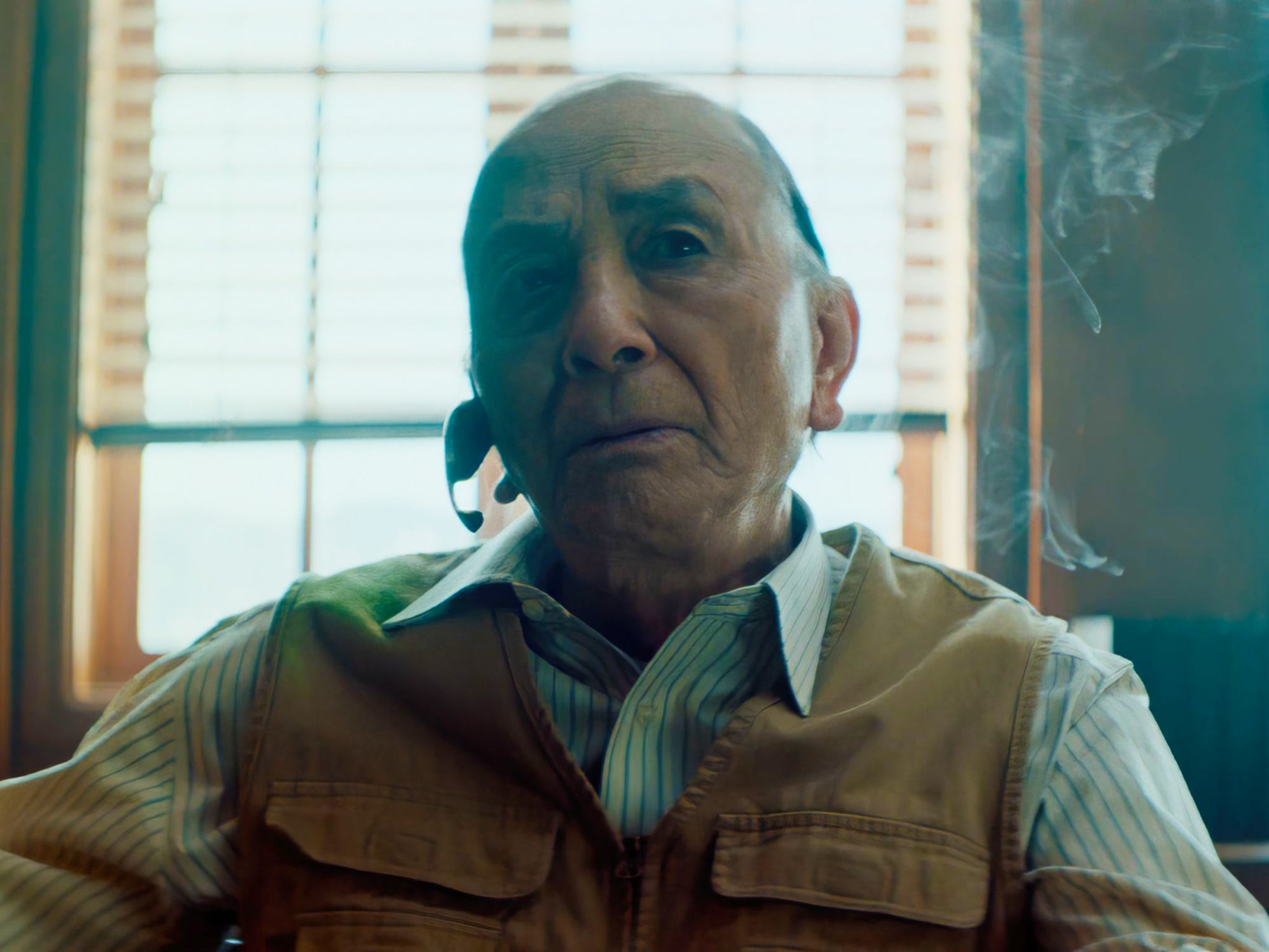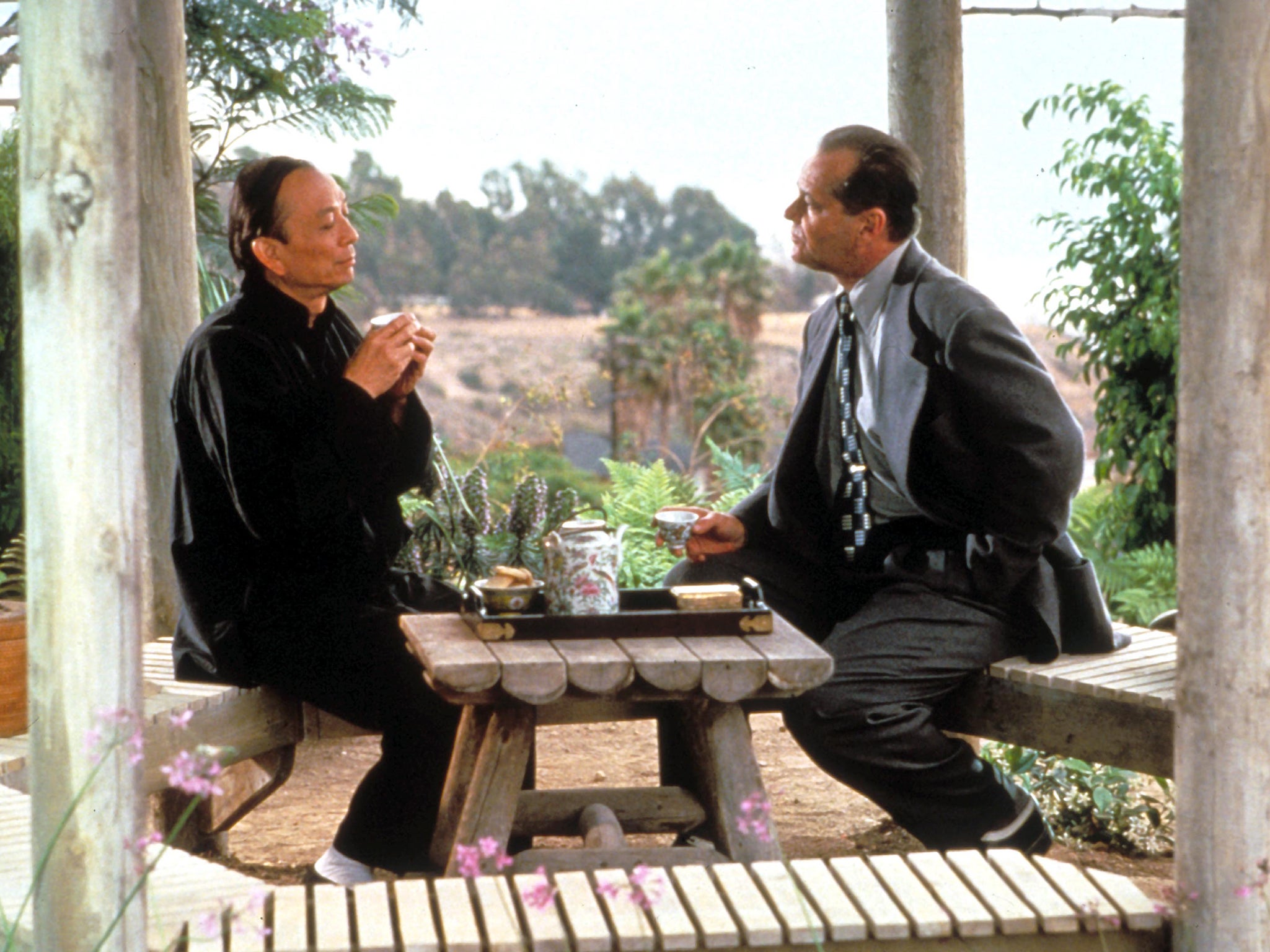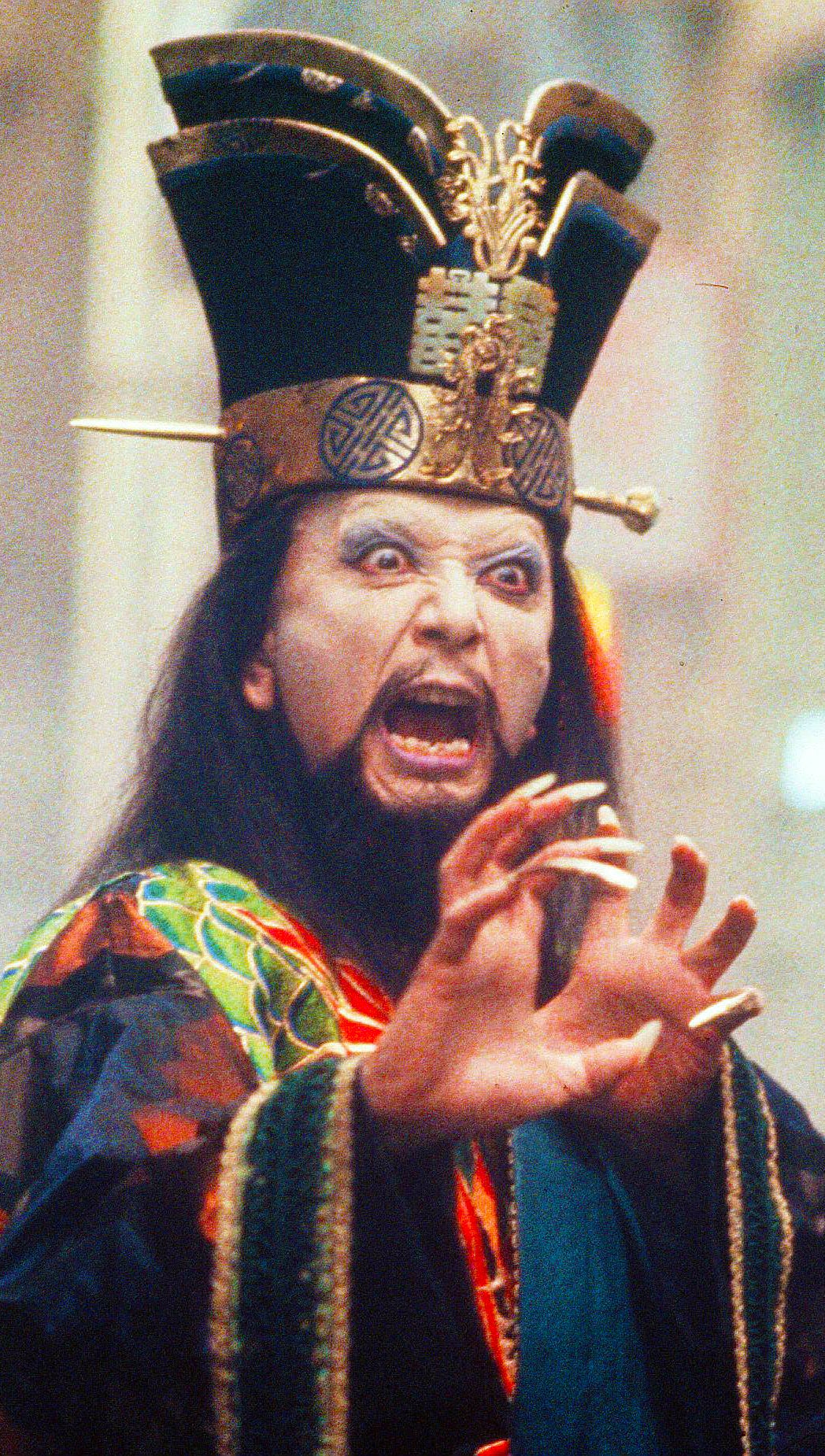James Hong, Everywhere man: Hollywood’s ultimate character actor has finally been given a showcase
Having appeared in everything from ‘Chinatown’ to ‘Friends’, the 93-year-old is one of Hollywood’s most prolific and recognisable character actors. And he’s brought all that experience to bear in the mind-bending new film ‘Everything Everywhere All at Once’, writes Kevin E G Perry


Your support helps us to tell the story
From reproductive rights to climate change to Big Tech, The Independent is on the ground when the story is developing. Whether it's investigating the financials of Elon Musk's pro-Trump PAC or producing our latest documentary, 'The A Word', which shines a light on the American women fighting for reproductive rights, we know how important it is to parse out the facts from the messaging.
At such a critical moment in US history, we need reporters on the ground. Your donation allows us to keep sending journalists to speak to both sides of the story.
The Independent is trusted by Americans across the entire political spectrum. And unlike many other quality news outlets, we choose not to lock Americans out of our reporting and analysis with paywalls. We believe quality journalism should be available to everyone, paid for by those who can afford it.
Your support makes all the difference.With 672 credits to his name, James Hong has almost certainly appeared in more films and television shows than any other actor in the history of Hollywood. In an extraordinary career that stretches back to the mid-Fifties, the 93-year-old has played everyone from Faye Dunaway’s butler in Chinatown to a designer of replicant eyeballs in Blade Runner.
He was the villainous sorcerer David Lo-Pan in Big Trouble in Little China and Cassandra’s high-kicking, back-flipping dad in Wayne’s World 2. He’s turned up in every sitcom from Seinfeld and Friends to The King of Queens and The Big Bang Theory. You’ve heard his voice in Mulan, every Kung Fu Panda movie, and even Pixar’s latest heartwarming hit Turning Red. If acting can be considered the inhabiting of another life, however briefly, then it’s reasonable to assume that James Hong has lived more lives than just about anybody else.
It’s also therefore fitting and utterly remarkable that the nonagenarian has just made one of the best films of his career, and that it happens to be a story about multiple lives. Everything Everywhere All at Once is a hard movie to describe succinctly. It falls somewhere between a Douglas Adams-penned martial arts flick, a particularly good Rick and Morty episode, and that bit in The Bell Jar where Sylvia Plath writes about a young woman and a fig tree, where the protagonist’s many possible lives branch off in front of her while she sits there starving to death because she can’t choose one for fear of losing all the others.
It’s directed by Dan Kwan and Daniel Scheinert – better known collectively as “Daniels”, and even better known as the men behind Daniel Radcliffe’s corpse-fart adventure Swiss Army Man (2016). They were also responsible for the face-melting, crotch-crushing viral video for DJ Snake and Lil Jon’s “Turn Down for What”, which gives you some idea of both their deranged sensibility and the breakneck velocity at which it is delivered.
For what it’s worth, the directing pair have described Everything Everywhere All at Once as a film about a woman who just can’t seem to finish her taxes, which is true but obviously coy. When we meet Michelle Yeoh’s harried laundromat owner Evelyn Wang, she is indeed struggling to get her affairs in order ahead of an imminent IRS audit. Part of the problem is that she keeps racking up expenses on half-pursued dreams and ambitions, never settling on any goal in particular, like the young woman in Plath’s fig tree tale.
From this seemingly mundane premise, the story grows into a fantastical, frenetic, multidimensional sci-fi caper when an alternative-universe version of Evelyn’s husband Waymond (Ke Huy Quan, who played Data in The Goonies) teaches her how to access every version of herself in every unlived life across the multiverse. This leads to a lot of very fast, very funny, and occasionally downright obscene martial arts sequences, like The Matrix with butt plugs.
At heart, however – like The Sopranos and the Fast & Furious movies – this is a story about family. The film’s sprawling plot ultimately revolves around Evelyn coming to terms with her controlling relationship with her daughter, Joy. Stephanie Hsu, best known as The Marvelous Mrs Maisel’s quick-talking Mei Lin, has delirious fun as both Joy and her multiverse-threatening alter-ego Jobu Tupaki. Her scenes with Yeoh crackle with both sci-fi pyrotechnics and heartfelt emotional intensity.
Where did Evelyn pick up her domineering tendencies as a mother? From her own parents, of course. They f*** you up, as Philip Larkin said. They may not mean to, but they do. On top of the stress of the audit, Evelyn is also dealing with the fact that her ageing dad has come to stay from China. As doddery as Gong Gong initially appears, he winds up more than holding his own when all the martial arts kick off.
The filmmakers have said that Hong was “so perfect for the role of Evelyn’s father that nobody else even auditioned”, and he brings his decades of experience skipping between lives to bear in a performance that is by turns funny, menacing, overbearing and heartbreakingly gentle.
It’s impossible to imagine anyone better suited to portraying the idea that we all live many lifetimes. He is, after all, one of the few people alive today who can honestly say they got a laugh out of Groucho Marx. Hong was born in Minneapolis in 1929, the child of Chinese immigrants, and got his start in showbiz entertaining his fellow army troops at Fort McClellan in Alabama.
The camp general enjoyed Hong’s performances so much that he requested he stay on the base rather than be sent to fight in the Korean war. Hong has said that decision may have saved his life, as he feared that not only would the Korean army try to kill him, but American troops might assume he was an enemy in disguise. “I definitely think I would have been shot from one side and the other,” he told China Insight in 2009.

Hong’s stage act involved a lot of celebrity impressions, and it was this talent for mimicry that won over Marx when Hong appeared on the comedian’s radio show You Bet Your Life in 1954. Marx wisecracked that he wasn’t surprised to hear Hong was from Minnesota, what with him having “a fine old Scandinavian name”. Hong then won over the audience with spot-on impersonations of Peter Lorre, Jimmy Stewart, James Cagney and – the pièce de résistance – Groucho himself. The appearance was so successful that Hong got himself signed with Bessie Loo, the only agent in Hollywood then representing Asian Americans.

Early roles were often stereotypical and demeaning – Chinese prisoners, laundry operators and railroad workers – and even winning heroic roles didn’t preclude him from experiencing racism. In 1957, Hong was cast as “Number One Son” Barry Chan in crime series The New Adventures of Charlie Chan. The eponymous detective was played by a white actor, J Carrol Naish, who had Hong fired after he missed a single line of dialogue.
“He said: ‘What is this, a school for Chinese actors?’” remembered Hong in an interview with CBS earlier this year. “I was shocked. I didn’t know what to do. He advanced on me. I had my fists clenched because I thought he was going to slug me or something. He walked past and had me fired.”
Hong refused to be deterred. Throughout the Sixties he built his career with roles in hit shows like The Man from UNCLE, I Dream of Jeannie and Hawaii Five-O. After he was cast in Chinatown in 1974, Jack Nicholson liked acting with him so much that he brought him back for his self-directed sequel The Two Jakes in 1990. Over the years, Hong has brought an innate gravitas to all his characters, even roles as silly as Hoshi, the Ultimate Fighting trainer in Friends who yells at Jon Favreau’s Pete: “No boom-boom before big fight!”
In his small but memorable role in the Seinfeld episode “The Chinese Restaurant”, Hong even found a way to dignify his dismissive maitre d’ character. “I read the script and it says Elaine puts a tip of $5 on my desk and I ignore her,” Hong told hometown publication Mpls St Paul magazine in 2020. “I said to the director, ‘How could any maitre d’ ignore a $5 tip? That’s not real.’ He says, ‘I don’t know, but you’ll make it work.’
So, come to the scene, I say, ‘What am I going to do?’ And when she puts the $5 down, I simply turned the page on the guest list and covered up the $5 and I said, ‘Yes, what is it you want?’ And she said, ‘No, no, no!’ – I made sense out of nonsense.”
Hong has the sort of presence that seems to give weight to even the most implausible or mind-bending storylines, which helps to explain the significance of his sublime performance in Everything Everywhere All at Once. It’s hard to think of many actors who could bring so many different versions of a person to life in a single performance, but for Hong it’s the role of a lifetime.
‘Everything Everywhere All at Once’ is out now in the US and coming soon to UK cinemas.



Join our commenting forum
Join thought-provoking conversations, follow other Independent readers and see their replies
Comments